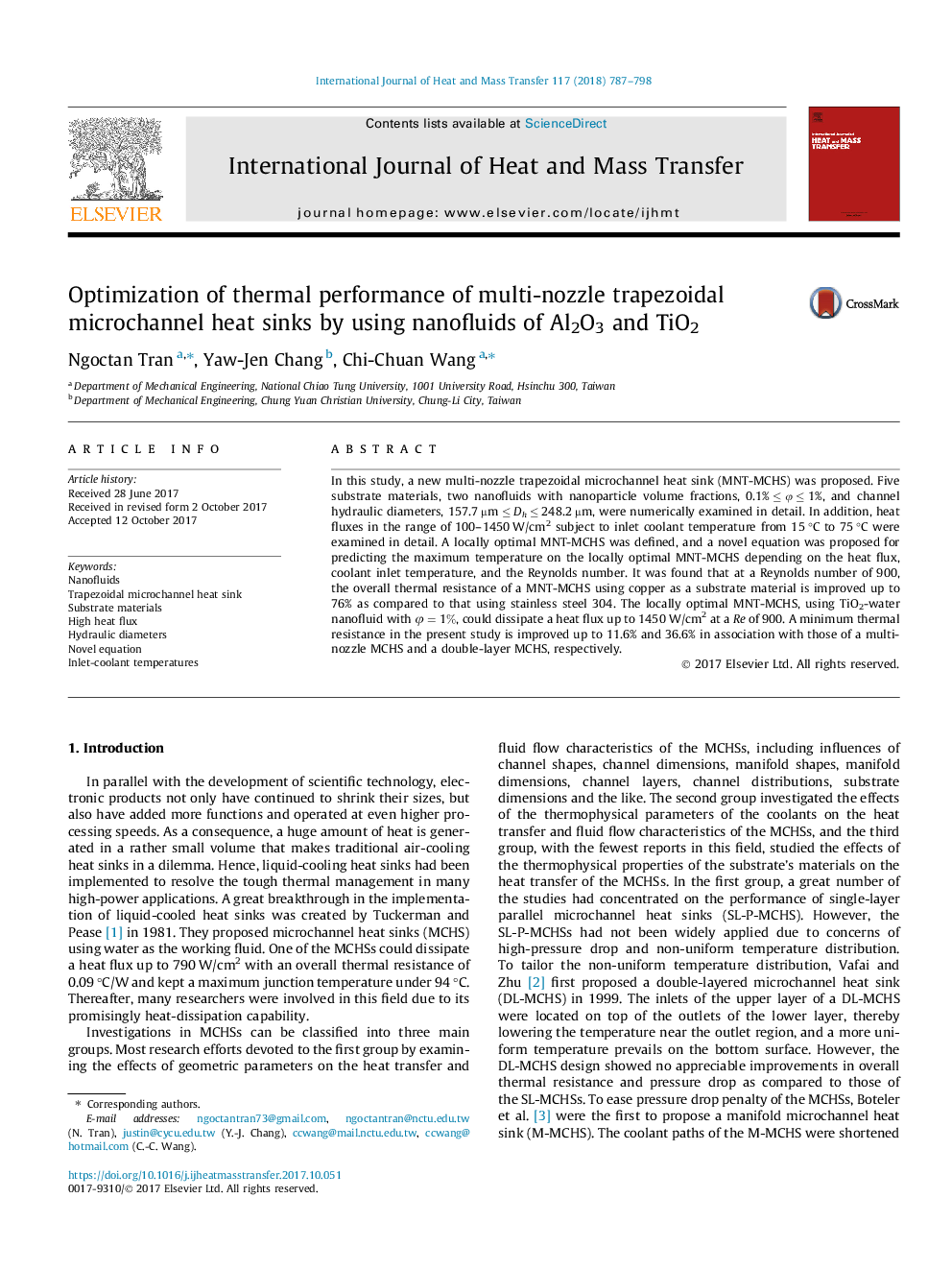| Article ID | Journal | Published Year | Pages | File Type |
|---|---|---|---|---|
| 7054839 | International Journal of Heat and Mass Transfer | 2018 | 12 Pages |
Abstract
In this study, a new multi-nozzle trapezoidal microchannel heat sink (MNT-MCHS) was proposed. Five substrate materials, two nanofluids with nanoparticle volume fractions, 0.1%â¯â¤â¯Ïâ¯â¤â¯1%, and channel hydraulic diameters, 157.7â¯Âµmâ¯â¤â¯Dhâ¯â¤â¯248.2â¯Âµm, were numerically examined in detail. In addition, heat fluxes in the range of 100-1450â¯W/cm2 subject to inlet coolant temperature from 15â¯Â°C to 75â¯Â°C were examined in detail. A locally optimal MNT-MCHS was defined, and a novel equation was proposed for predicting the maximum temperature on the locally optimal MNT-MCHS depending on the heat flux, coolant inlet temperature, and the Reynolds number. It was found that at a Reynolds number of 900, the overall thermal resistance of a MNT-MCHS using copper as a substrate material is improved up to 76% as compared to that using stainless steel 304. The locally optimal MNT-MCHS, using TiO2-water nanofluid with Ï=1%, could dissipate a heat flux up to 1450â¯W/cm2 at a Re of 900. A minimum thermal resistance in the present study is improved up to 11.6% and 36.6% in association with those of a multi-nozzle MCHS and a double-layer MCHS, respectively.
Related Topics
Physical Sciences and Engineering
Chemical Engineering
Fluid Flow and Transfer Processes
Authors
Ngoctan Tran, Yaw-Jen Chang, Chi-Chuan Wang,
